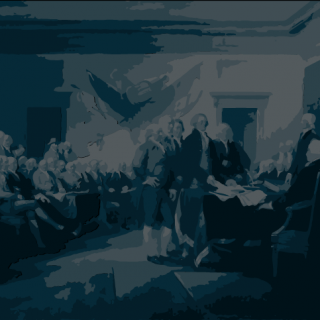Vaccination
It came out yesterday, the last book of the journalist Giulia Innocenzi, Vaccination (Baldini & Castoldi). It must be said that this is not a case against vaccines. “But a criticism of this health care policy which requires 10 vaccinations required and recommended 4 other,” explains the author.
The volume covers the most debated topics in recent months: if the obligation will be able to convince skeptics and help raise the vaccination coverage (by the way the Who is opposed to the obligation); such as fake news have confused the public opinion, from those disclosed, naively or intentionally, by the minister Lorenzin – as the 220 deaths of measles in England that never were, or the fact that many foreigners we gave up the trip to an amusement park because impestata from measles (circumstances denied by the management of the Park and on the traffic) – to those that are circulating on the web; from the pharmaceutical companies to conflicts of interest, from pharmacovigilance to damaged by the vaccine. Among the latter stands out the drama of the Jade Dragons, the twelve-year-old of Ravenna, who died three years ago following an epileptic seizure caused by encephalitis post-vaccination.
“Jade is one of the 630 cases recognized by the Ministry and compensated for thanks to the law 210 of 1992. One wonders if this tragedy could have been avoided with a pharmacovigilance appropriate – observes Giulia Innocenzi – Jade had always had abnormal reactions to vaccination and very high fever. The trivalent measles, mumps, and rubella the caused the encephalitis”.
How to divert attention away from the conflicts of interest by watching the finger and not the moon.
The Fact the Newspaper has reported a large excerpt of the book of Innocenzi, referred to the alleged conflicts of interest of the president of the national Institute of Health, Walter Ricciardi. Ricciardi has participated in the drafting of the national plan vaccines, has contributed to the achievement of the decree-law on the obligation of vaccination despite having provided consultancy for companies that produce vaccines – he himself declared – among which stand out those for vaccines meningococcal B, anti-pneumococcal and anti-papilloma.
But the one who presides the national Institute of Health, and recommends that the effectiveness of the vaccination can receive money from the companies that produce vaccines?
Those who play a role in public Health, the protection of the sick, can work side-by-side with those individuals who make business with the public?
No, of course not. But even if there was a quibble as to make possible an alleged conflict of interest, it would be a good thing to declare it to the tens of thousands of families that are preparing to vaccinate the children, who, in good faith, who is under blackmail.
Remember that the antimeningococco B was evaluated by researchers of the higher Institute of Health “lack of studies”, please click here from page 26 to 29. Nevertheless, Ricciardi has always recommended.
Giulia Innocenzi has documented the alleged conflicts of interest of Ricciardi. We read:
“In July 2014 Ricciardi has been appointed the extraordinary commissioner of the main body of research on health in Italy and, a year later, he is appointed by the minister Lorenzin, president”. On the occasion of this task-and still write Innocenzi – deputy Massimo Enrico Baroni to the social Affairs Commission of the Chamber observed that “generally for all the nominees of the extraordinary commissioner has a inconferibilità next to fill the role of president. Refers to a recent trend of the national anti-corruption 6 may 2015”.
The author traces the powerful curriculum Ricciardi, lists the many duties, past and present, many of which are funded by the industries.
What interests us is the document cited by Giulia Innocenzi that Ricciardi presented twice at the european Commission, in 2013 and in 2014. Click here. Our president of the Institute of Health declares to have taken care of the evaluation of the impact on the health of a fortnight of medicines, including vaccines meningococcal B, anti-hpv and anti-pneumococcal. As you can see, the products were all called “vaccine” even though, in fact, include several drugs, such as monoclonal antibodies, antifungal and antihypertensive.
Who has committed the lightness of naming them all “vaccines”? It is assumed the secretary of the Broom or the Broom itself, as there is his signature on that document (but anyone who has done so, the responsibility is to Ricciardi that he would have to check).
And, instead…listen, listen…
You blame the author of the book (sic!). It gives you the to have confused the drugs with vaccines – a major mistake for charity, just because signed by Ricciardi – but trinkets compared to the complaint of conflict of interest that the Innocenzi has the merit of having placed under the eyes of all.
And nothing. The stream of monopensiero advances quick and fracassone, with the claim of submerging the beam, and keep up the mote.
Professor Roberto Burioni spoke kindly, saying that “the sfondoni are sfondoni, are written black on white and lots and lots of it”. Since no one can ask questions to Burioni, no one has been able to understand what were “the many sfondoni” (in addition to those counter-signed by Ricciardi). The professor spends several words, “if a cook-book swap the bricks with the cakes, it becomes difficult to judge” and blah blah making us to understand that the books on the vaccines it is better for them to write him alone, that young people need to think to study.
Not a word about conflict of interest! The beam, or worse, the evil of this health policy.
Moral: Ricciardi is not responding but the threat of lawsuits. Burioni does not accept questions. And Giulia Innocenzi has written a fine book. That hopefully will make change to this health policy imbued with obligations, blackmail and conflicts of interest.
Original source: http://blog.ilgiornale.it/locati/2017/12/09/vacci-nazione/







